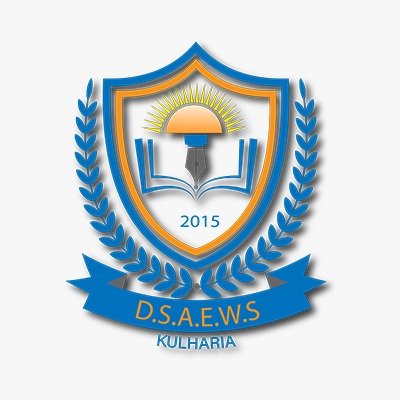Bachelor of Science (B.Sc.) Program at D.S.M.S College
Program Overview
The Bachelor of Science (B.Sc.) program at D.S.M.S College is a three-year undergraduate degree designed to provide students with a strong foundation in scientific principles and methodologies. The program is intended to develop analytical and problem-solving skills, preparing students for a variety of careers in science, research, and technology. D.S.M.S College offers B.Sc. degrees in several core science subjects, allowing students to specialize in their area of interest while gaining comprehensive knowledge across the scientific disciplines.
Why Choose D.S.M.S College for B.Sc.?
1. Comprehensive Curriculum and Specializations
The B.Sc. program at D.S.M.S College offers a variety of subjects for specialization, providing students the flexibility to choose their field of interest. Major streams available include:
- Physics: Study of the fundamental laws of nature, exploring areas like mechanics, thermodynamics, electricity, magnetism, and quantum physics.
- Chemistry: In-depth understanding of chemical reactions, organic and inorganic chemistry, physical chemistry, and analytical techniques.
- Mathematics: Focus on advanced mathematical theories, calculus, algebra, statistics, and applied mathematics.
- Botany: Study of plant biology, plant physiology, ecology, and biodiversity.
- Zoology: Exploration of animal biology, anatomy, physiology, genetics, and ecology.
- Computer Science: Focus on programming, data structures, algorithms, databases, and software development.
Each B.Sc. program consists of core subjects, elective subjects, and practical lab work. In addition to theory classes, the curriculum emphasizes hands-on training through laboratory experiments, research projects, and fieldwork (for subjects like Botany and Zoology).
2. Experienced Faculty and Research-Oriented Learning
The faculty at D.S.M.S College consists of highly qualified professors and researchers with extensive academic and industry experience in their respective fields. They offer valuable insights into the latest developments in science and technology and are dedicated to helping students develop a deep understanding of scientific concepts.
- Research-Oriented Learning: Students are encouraged to participate in research projects, seminars, and science fairs, helping them apply theoretical knowledge to practical scenarios.
- Guidance and Mentoring: Professors provide individual attention, helping students in their academic growth, career planning, and preparation for competitive exams or research programs.
3. State-of-the-Art Infrastructure and Laboratories
D.S.M.S College is equipped with modern laboratories and facilities that support hands-on learning and experimentation. The college’s infrastructure is designed to provide students with a conducive environment for scientific inquiry.
- Physics Lab: Equipped with advanced instruments for experiments in mechanics, optics, electromagnetism, and thermodynamics.
- Chemistry Lab: Well-stocked with chemicals and equipment necessary for practicals in organic, inorganic, and physical chemistry.
- Biology Labs: For Botany and Zoology, there are dedicated laboratories for microscopic study, dissections, and biodiversity experiments.
- Computer Lab: Fully equipped with modern computers and software tools, providing students with hands-on experience in programming, data analysis, and software development.
In addition, the college has a central library that offers a vast collection of books, scientific journals, and e-resources to support the academic and research needs of students.
4. Innovative Teaching and Learning Approaches
- Lectures and Seminars: The program includes interactive lectures, guest seminars, and workshops conducted by experts in various fields of science.
- Lab Work and Practical Training: A major component of the B.Sc. program is lab work, where students conduct experiments, analyze results, and learn about scientific techniques and methodologies.
- Project-Based Learning: Students engage in independent research projects under faculty supervision, allowing them to explore specific areas of interest in greater depth.
- Field Trips: For students specializing in subjects like Botany or Zoology, field trips are organized to explore flora and fauna in their natural habitats.
5. Extracurricular and Co-Curricular Activities
Along with academics, D.S.M.S College encourages students to participate in co-curricular and extracurricular activities, promoting holistic development.
- Science Fairs and Exhibitions: The college regularly organizes science fairs, where students can showcase their research projects and innovative ideas.
- Clubs and Societies: The college has active science clubs, nature clubs, and other societies that provide platforms for students to discuss scientific advancements, participate in quizzes, and attend workshops.
- Sports and Cultural Activities: Students are also encouraged to participate in sports, cultural festivals, and other college events to develop leadership, teamwork, and communication skills.
6. Career Development and Placement Support
D.S.M.S College provides robust support for students in shaping their careers in science. The college has a dedicated Career Guidance and Placement Cell that offers the following services:
- Career Counseling: Personalized guidance to help students explore various career options in fields such as research, academia, and industry.
- Internship Opportunities: The college has strong ties with industries and research organizations, helping students secure internships that provide hands-on experience and professional exposure.
- Placement Assistance: The Placement Cell organizes campus recruitment drives, inviting companies from sectors like IT, pharmaceuticals, biotechnology, and education to hire graduates. The college also provides training in soft skills, interview techniques, and resume writing to prepare students for the job market.
7. Career Opportunities After B.Sc.
Graduates of the B.Sc. program have numerous career opportunities in both the public and private sectors. Some of the key career paths include:
- Scientific Research: Working in research laboratories, universities, or research institutions in various scientific domains.
- Technical and Laboratory Roles: Employment in industries such as pharmaceuticals, biotechnology, chemical industries, and environmental agencies.
- Information Technology: For students specializing in Computer Science, roles in software development, data analysis, and IT services are available.
- Education: Graduates can pursue careers as school teachers or lecturers after completing further studies, such as B.Ed. or M.Sc., or qualifying competitive exams like NET.
- Government Jobs: B.Sc. graduates can apply for various government positions through competitive exams like UPSC, SSC, or State Public Service Commissions.
- Higher Studies: Many students choose to pursue postgraduate degrees such as M.Sc., MCA, or specialized diploma courses in emerging fields like data science, biotechnology, and environmental science.
